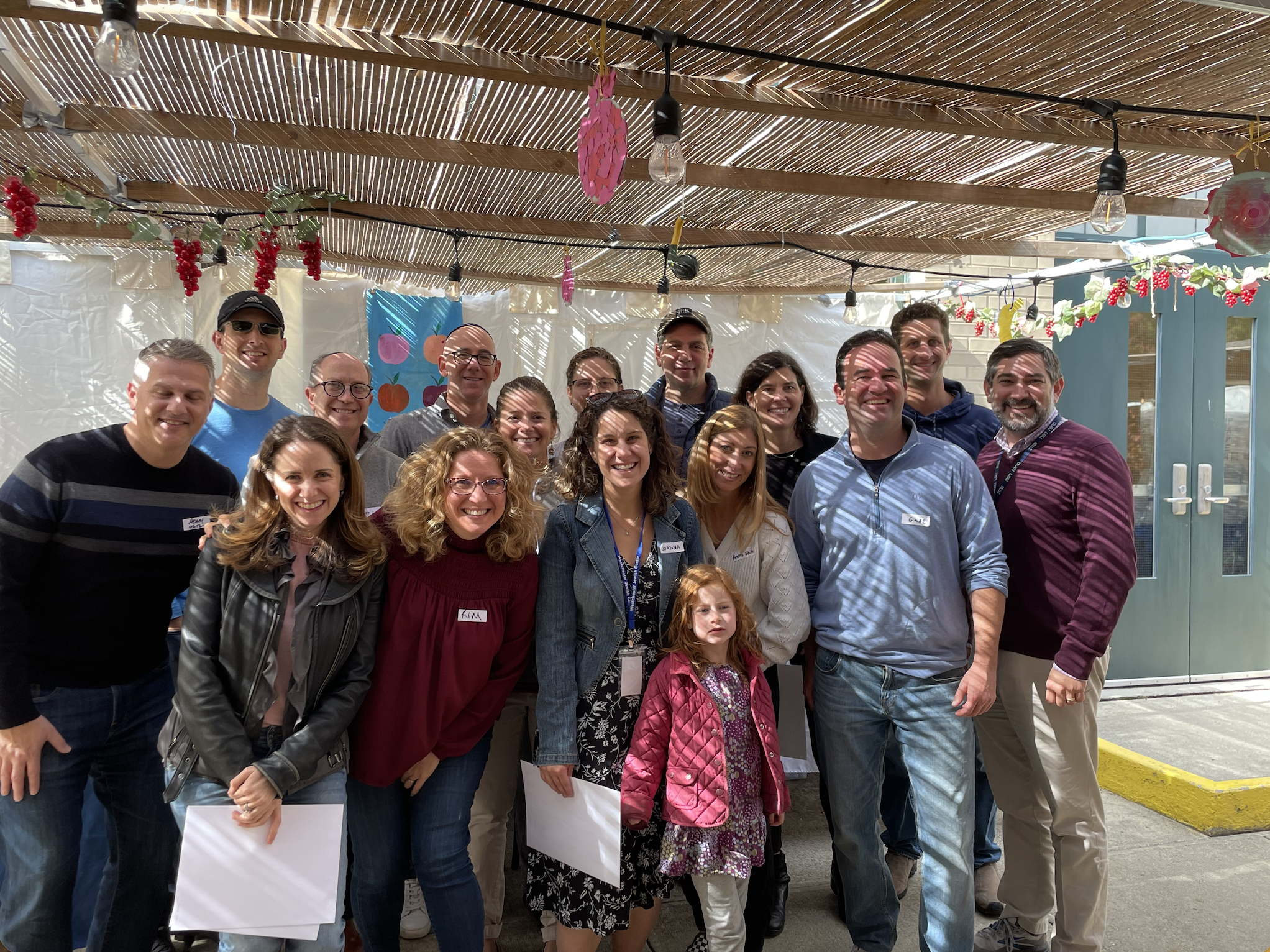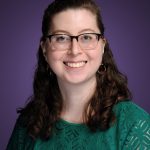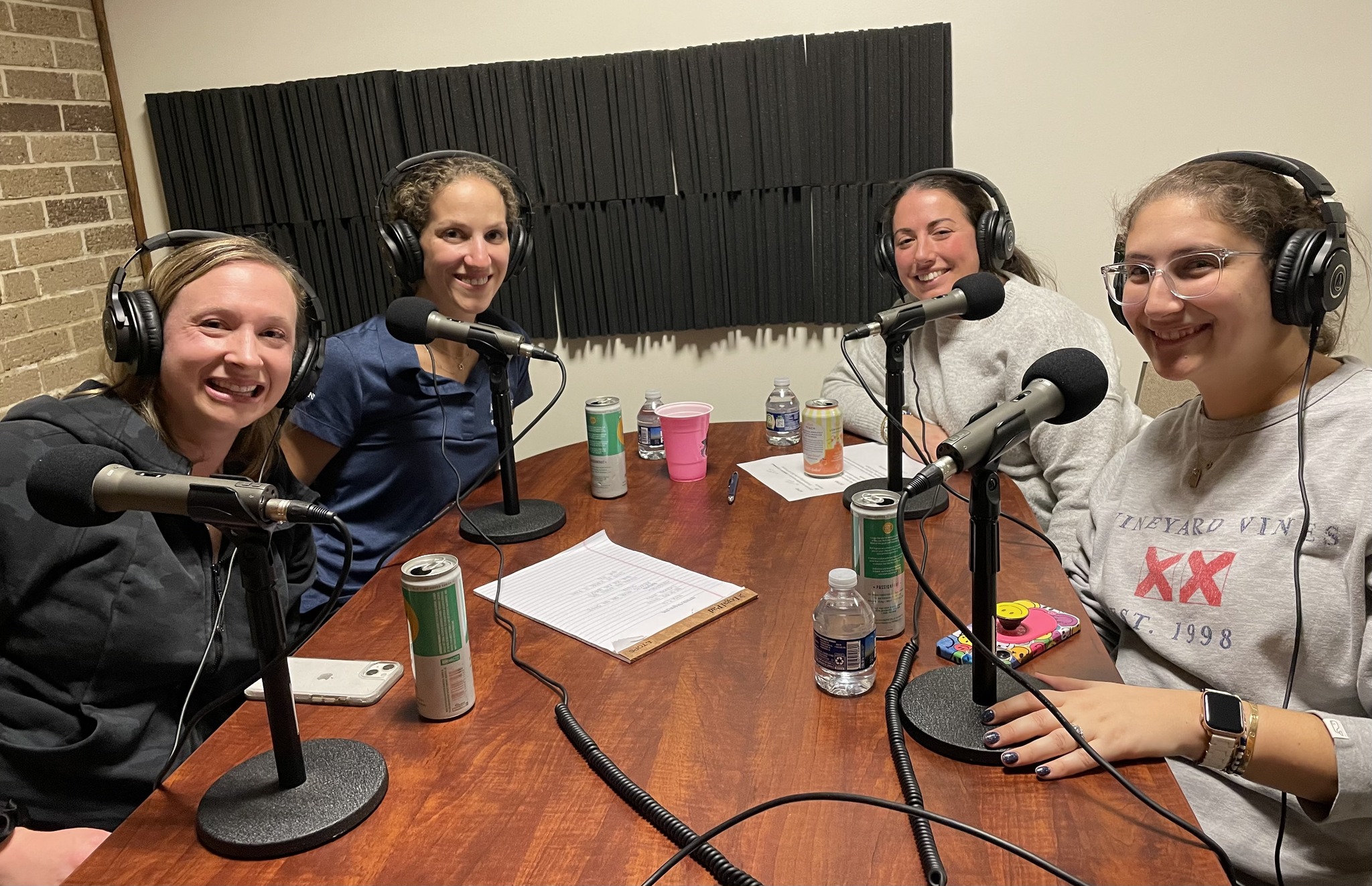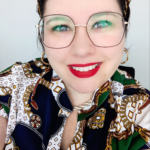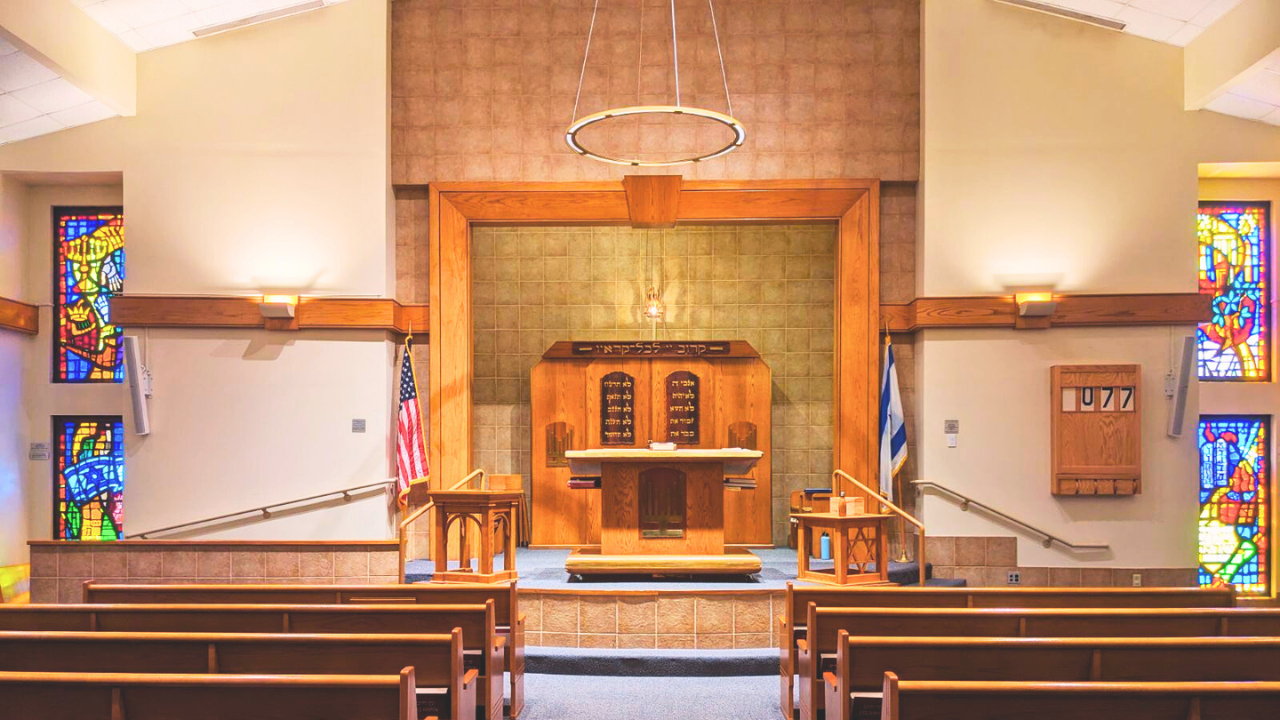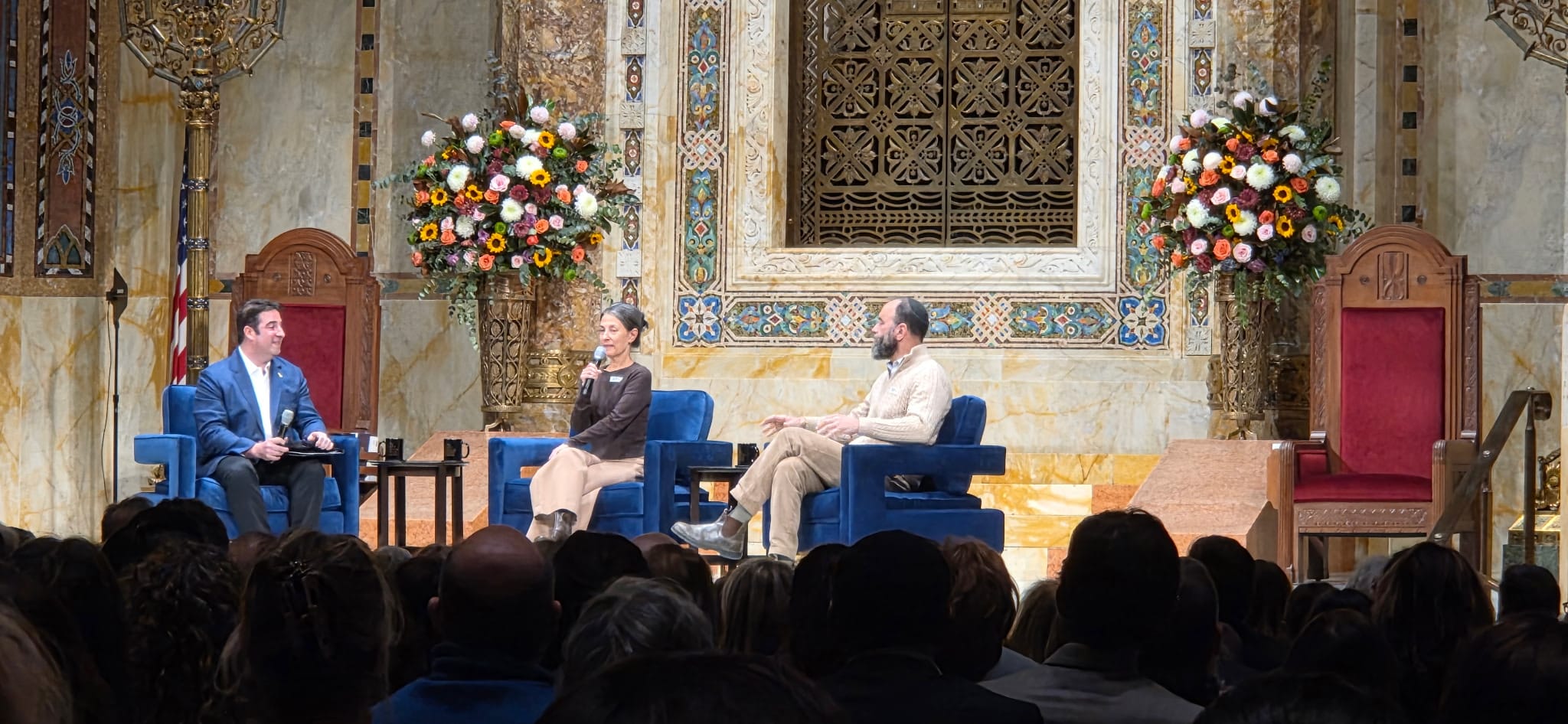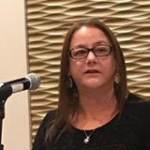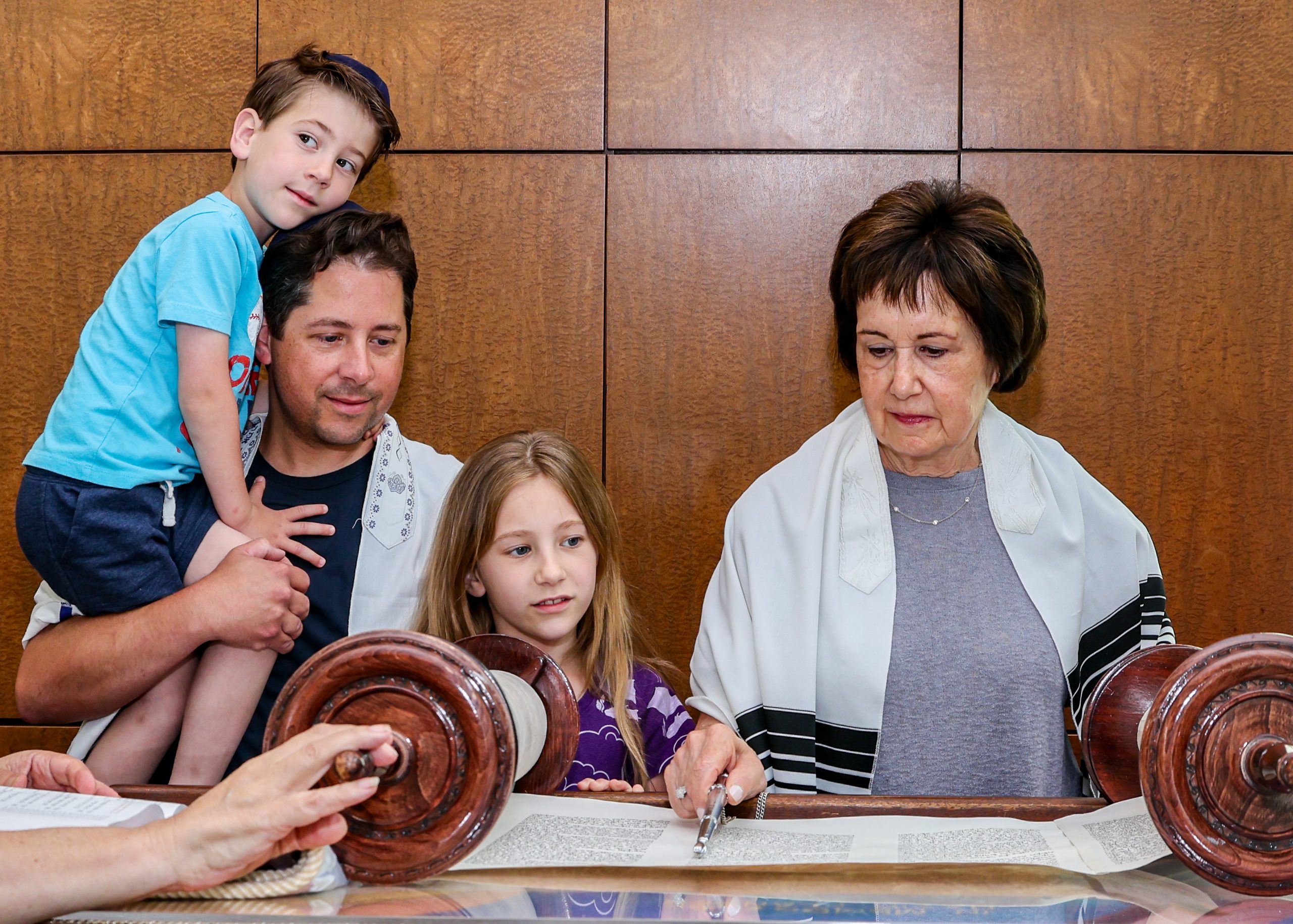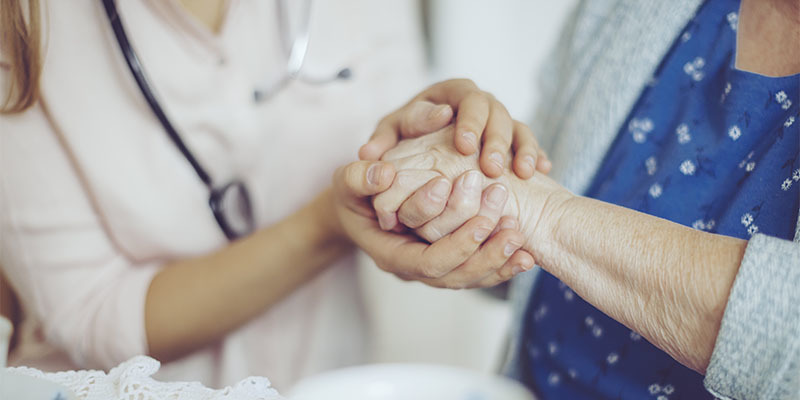
Go to any Kiddush at the Hollis Hills Bayside Jewish Center and you’ll see one woman who always has someone to talk to. A woman so busy, “I’m lucky if I can get a piece of cake.” She’s Linda Liederman, the Congregational Nurse — the reason her synagogue won the USCJ 2017 Solomon Schechter Award for Chesed (compassion).
“It’s wonderful that all these people want to talk to me,” Linda says. “They need to know that somebody cares.”
Bringing faith and health together in the Jewish community
Congregational Nursing began in the Lutheran Church during the 1980s as a way to minister to both the spiritual and medical needs of its members. Today there are about 15,000 congregational nurses in the United States, and the American Nurses Association officially recognizes it as an area of nursing practice.
The idea to create a program like this at the Hollis Hills Bayside Jewish Center came from Linda’s husband, Arthur Liederman, who is also the synagogue co-president. “He tossed out the idea and I latched onto it immediately,” says Linda. “It just fit with my professional interests and my personal passion for Chesed.”
A registered nurse, Linda spent the better part of her career employed as a clinician providing hands-on care and teaching homebound seniors to manage their healthcare. She knows the healthcare system and has seen first-hand many of the issues congregants and their families encounter.
At the Hollis Hills Bayside Jewish Center, the clergy, Rabbi David Weiss and Cantor Sol Zim, offer comfort and spiritual support to members facing health challenges. Linda advises them, while focusing her primary efforts on those areas where her professional knowledge and experience can make a difference.
An invaluable resource for her congregation and the community
Since becoming the Congregational Nurse in 2016, Linda has been the Chesed Committee’s “go-to” for education, information and advocacy. Many who come to Linda are dealing with aging and decline in function. If not their own, a spouse’s or a parent’s. Linda helps them navigate the social and medical services available to them, often providing resources as well as referrals.
“Sometimes people just want to know who to call and where to go for help. How do you hire a home health care agency? How do you explain what you need?”
Linda also helps with patient advocacy. Many older congregants spent their lives doing exactly what the doctor or nurse told them to do, without ever questioning — an approach that doesn’t always lead to the best outcomes.
“The system may want to send someone to a hospital or rehab center miles away, even when an equally suitable facility is nearby. I let them know it’s okay to speak up. It’s not disrespectful.”
A longtime member of the synagogue’s Chesed Committee, Linda takes the lead in many health and wellness programs. She has counseled her congregants on obtaining new vaccinations and instructed on medications that are newly prescribed. When the idea came up to hold CPR training, Linda found a teacher and 18 members of her community got certified.
At the Hollis Hills Bayside Jewish Center Health Fair, which featured a line-up of speakers and 15 exhibitors, Linda declined to have her own table. Instead, she “worked the floor,” making sure members of the congregation spoke to people who could help with their individual needs.
A vehicle for outreach at no cost to the congregation
Linda acknowledges that the membership of many congregations may include medical professionals who help as Linda does, but on an informal basis.
However, by formalizing it as a program, the Hollis Hills Bayside Jewish Center has helped bring value to members and attract notice from the surrounding area.
“I get calls from the community all the time,” she says. “Not all calls come from congregants. Some are from people who aren’t even Jewish. We talk about their circumstances and in most cases, develop a plan to resolve the issue on that one phone call.”
Meanwhile, the Congregational Nurse Program cost nothing to set up and administer. Linda is an unpaid volunteer. The Hollis Hills Bayside Jewish Center only had to add a page to their website and create an email address for the program. They also produced a flyer in-house. And most importantly, they set up a dedicated phone number for the Congregational Nurse on the synagogue directory, where members can leave confidential information and/or request a call back.
Linda would like to see more Jewish congregations establish similar programs. “I look forward to the moment when someone else comes up to me and says, ‘we have a program, too.’ That way we can network and grow.”

